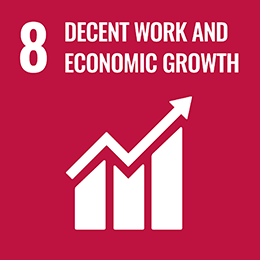Antitrust and Big Tech Monopoly

Share this article
To trust or to antitrust?
“To widen the market and to narrow the competition, is always in the interest of the dealers” Adam Smith, The Wealth of Nations
The history of capitalism suggests that new industries are allowed a grace period of decades before the state marches in with a set of behavioural-constraints. Who you trust best to allocate assets and market practice (the state or private enterprise) is the basis of economic theory and theories of social freedom. Ayn Rand in the blue corner; Karl Marx, the red.
The world wide web turns 30 next year and more than half of the world’s population is now online. What started as an egalitarian and decentralised non-proprietary protocol to access a varied selection of blogs and websites is now monopolised by technology platforms such as Google, Facebook and Amazon.
Imagine a world without Google—74.5% of all search traffic—Facebook—2.13 billion active monthly users globally—and Amazon—44% of US e-commerce sales. Not easy.
Their services are almost basic necessities of life. Yet, shorting the FAANGs (Facebook, Apple, Amazon, Netflix and Google/Alphabet) seems to be this month’s sport.
From the leaked personal data held on Facebook through to Trump’s anti-Amazon tweets, it is not hard to see why investors are beginning to see the end of Tech 2.0 and worry about the future of big tech stocks¹.
Why?
In one word: monopoly.
Not the Parker Brothers’ classic board game, which incidentally has now gone cashless, but because of the power that Apple, Amazon, Google, Facebook and Microsoft now have.
The Frightful Five, as dubbed by New York Times columnist Farhad Manjoo, are among the top 10 most valuable companies in the world as ranked by market capitalisation.
But it is not just their individual size that makes them a force to be reckoned with. This merely gives them influence over people, society and governments, potentially even a threat to democracy.
Unlike their monopolistic predecessors, their approach to business, technology and innovation is challenging established definitions of monopoly. Therefore, taking any one of them down is not as legally straightforward as simply applying the Sherman Antitrust Act. At least as the law is currently written.
Niall Ferguson recently highlighted² how the Silicon Valley must-read bible Snow Crash embodies Valley disdain for clumsy regulators attacking problems one-step-behind (the Model T is invented and now they want to regulate horses).
Adoption of new technology in sectors outside what these companies are originally known (for example artificial intelligence) may continue to disrupt commerce, impact jobs and widen inequality, but as single entities these companies are still ‘emerging’ and the case for a monopoly is hard to make.
Consider Google, which has been known as a search engine for two decades. With nearly 75% of all search traffic going through it, Google clearly has a monopoly on search. But search is free, so who are they harming?
Through its parent Alphabet, Google also owns other businesses: the GPS navigation software Waze, YouTube, DeepMind Technologies, Waymo, Verily and Google Cloud, which it rents out to third parties such as Apple³, but in none of these fields does it have a monopoly.
The same is true for Amazon. Despite having its fingers in many smaller pies including cloud server space, as well as lending, shoes, shipping, Kindle e-reader, music and video streaming, logistics and fashion, for its core business, Amazon was responsible for 44% of all US e-commerce sales in 2017.
Once again, however, by antitrust definition, this was only 4% of all US retail sales, so technically there is plenty of potential for growth.
At the World Economic Forum in Davos in January, George Soros, former hedge fund manager and philanthropist, said that Facebook and Google had become obstacles to innovation, a menace to society and that their days are numbered.
Soros’ comment on innovation refers to their strategy of buying up rivals, competitive start-ups, and building what they need by often copying the ideas of the companies they have looked at buying.
Facebook is the perfect example of this. It bought Instagram and WhatsApp even though it already has its own Messenger brand. Its bid to buy Snapchat was rejected, so instead both Instagram and Facebook introduced the popular Snapchat ‘stories’ function, which in turn affected Snap’s IPO price.
At the height of globalisation, the likes of Alan Greenspan, former Federal Reserve chairman, and economist, Milton Friedman would have argued to let capitalism do its job. Looking at the share prices of some of the FAANGs and other technology players, they might be right.
The battle for online advertising dollars is being fought between search and social media. Google and Facebook together are expected to have attracted 84% of the global spending on digital advertising4 outside of China in 2017.
For the first time since 2014, however, search outpaced social media for referral traffic last year and that was before the Cambridge Analytica data breach that saw $35 billion wiped off the social media giant’s market valuation.
But Google’s ‘monopoly’ is not assured either. It is expected to earn 80% of all the US online search advertising revenues in 2018. By embracing the latest paradigm in technology, namely voice recognition and natural language processing, could it potentially erode its own main revenue stream? Just think, with voice there are no online pages on which to house the lucrative adverts.
The antitrust conversation gathered momentum last year on the back of Amazon’s takeover of Whole Foods. The deal shone a spotlight on the inadequacy of the US antitrust laws5 for regulating the new generation of technology corporations, resulting in hedge fund managers Doug Kass and David Einhorn shorting the platform on the back of antitrust uncertainty.
With Whole Foods, Amazon now owns bricks and mortar, proving it wants to be more than just an online retailer. Legislation does not regulate for the ‘intent’ to be the main platform to sell everything.
Nor can anything currently be done for those that fear Amazon’s impact on jobs: when Alexa will shop for Amazon’s own brands now including groceries; or when the drones and robots will pick and distribute the products.
We are not at the height of globalisation, however. In today’s populist world things might be different. If Trump’s recent tweets about Amazon are anything to go by those laws are more likely to be updated than repealed.
There is no doubt there is a problem on the horizon. These platforms might not be breaking the letter of current laws but that does not mean they are not seeping into every corner of daily and business life.
The convoluted interconnectedness and concentration of power in the hands of the few that ‘control’ the web is starting to make politicians and investors jittery. For example, Snapchat is renting cloud space off Amazon Web Services, now the 5th largest business software company in the world with the America’s Central Intelligence Agency as a client.
And Snapchat is also paying $400 million per year for five years to Google Cloud. Add in the fact that Apple and Google have cornered the app store market, which could be worth £4.69 trillion by 2021.This means that start-ups will be paying for cloud storage, online advertising and app fees to potentially one or two of the technology giants.
In the case of Netflix, which pays a fee to Amazon Web Services, it also finds itself competing for original TV content with Amazon Prime.
So, what is the solution? In the past, the power of monopoly was used to accelerate growth in a new territory. After dominance in a sector was established, the regulators would generally step in. In the early 20th century, oil was one of the vital commodities.
When Standard Oil was deemed to be too big and too powerful it was broken up in May 1911 under the Sherman Antitrust Act of 1890, making its founder John D. Rockefeller the world’s first billionaire.
Today’s ‘vital’ resources are data and networks, so it is not surprising that Jeff Bezoz, CEO of Amazon is the richest man in the world, according to Forbes Top 20 Billionaires 2018; a list that also includes fellow data miners: Microsoft’s Bill Gates, Facebook’s Mark Zuckerberg, Larry Page, CEO of Alphabet and Sergey Brin, chairman of Google.
But are the antitrust laws designed in the 1900s appropriate today? Antitrust suits filed against both International Business Machines and later Microsoft, both of whom controlled some 70% of the computer markets in their respective heydays, failed.
Today, regulation needs to take into account the utility factor of platforms with the power of data collected by those that own the platforms. On this subject, Amazon, which started as an online bookstore in 1994 and is now the world’s most valuable brand ahead of Apple and Google, is the one to watch. The e-commerce giant’s brand value increased by 42% year on year to $150.8 billion.
In a paper titled Amazon’s Antitrust Paradox for the Yale Law Journal, Lina Khan explains how Amazon’s strategy of growth before profits, by pricing below costs, has both allowed it to become central to e-commerce as well as a platform on which a large number of other businesses exist.
Khan argues that if the economics of platform markets encourage anti-competitive market structures, then platforms can either be governed through competition or regulated so that they are able to take advantage of these economies of scale while neutering the firm’s ability to exploit its dominance.
It’s ironic that the original board game Monopoly was patented as the Landlord’s Game in 1903 by Elizabeth Magie Phillips with two sets of rules designed to teach people about income inequality. Of the two, the rule that made David Darrow rich when he patented Monopoly allows players to create monopolies and crush opponents.
So, America will unleash regulation on the Valley, which in turn will constrain growth, and lead to a period of adaptation. Meanwhile, in China, Tencent, a trillion dollar company in-the-making with WeChat that combines Facebook, WhatsApp, Tinder, Google Translate and Apple Pay features in a single app, works hand in hand with the state.
You can see the long/short trade but also the Faustian bargain.
Omar Ayache
Photo: © Niki Natarajan 2012
Artist: Alec Monopoly
¹ Tech stock woes threaten Wall Street bull market (30.3.2018) Financial Times
² Well, duh — Mark Zuckerberg’s trip to DC was classic sci-fi (15.4.2018) The Sunday Times
³ Apple signs up to Google Cloud Services (17.3.2016) Financial Times
4 Google and Facebook dominance forecast to rise (4.12.2017) Financial Times
5 Big Tech and Amazon: too powerful to break up? (30.10.2017) Financial Times
Article for information only. All content is created and published by CdR Capital SA. The views and opinions expressed in this article are those of the author(s). Information on this website is only directed at professional, institutional or qualified investors and is not suitable for retail investors. None of the material contained on this website is intended to constitute an offer to sell, or an invitation or solicitation of an offer to buy any product or service. Nothing in this website, or article, should be construed as investment, tax, legal or other advice.
Related articles
Democracy
The UK’s vote to exit the European Union and Donald Trump’s victory were signals of a worsening ‘democratic recession’. Today, only 4.5% of the world’s citizens live in fully functioning democracies, down from 8.9% in 2015. What are democracy’s flaws?

Totalitarianism’s Trojan
Freed from the shackles of censorship, the anti-boundaries protagonists of the 1960’s anti-establishment evolved into the alternative thinkers that defined Silicon Valley and Jobs, the poster child for how computers would free the consumer and citizen.

Big Data & DNA
With epigenetics and cheaper ways to check for faulty genes, DNA has the potential to be big business. By next year, the DNA sequencing market could hit $10 billion and that’s before the profits of the consumer industries have been taken into account.





